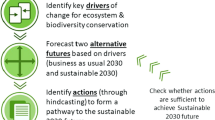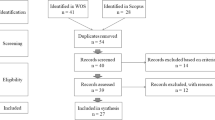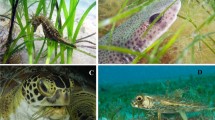Abstract
For many coastal nations in the Western Indian Ocean, and notably the islands of Madagascar, Mauritius, and Seychelles, the tuna fishery is considered one of the main pillars of economic development, providing jobs and substantial revenues while ensuring food security. However, the fishery is also an illustration of the paradox behind the idea of the blue economy, where economic growth and sustainable use of resources are promoted as jointly achievable. We show that a sustainability narrative, in which the idea of fishing within ecological limits is present within government policy, public discourse, and practices, is, however, in contradiction with the realities of accumulation and growth that prevail in the fishery. When measures towards ecological preservation are to be taken, geopolitics of access to the sea and tuna enter the stage and change the position and narrative of the same actors, governments, and industrial actors that promote sustainability. We emphasize the difficult and nearly impossible path of practicing sustainability in the current model of growth-driven tuna fisheries. We argue for the need to repoliticize the practice of sustainability through the questioning of what we see in tuna fisheries: a hegemonic narrative of sustainability and implicit growth, without positive socio-ecological transformations.

(Source: Analysis by the authors)

Similar content being viewed by others
Notes
At the 2019 IOTC meeting, the Maldives objected to the calculations by the Secretariat of the IOTC on the basis that the figure was cumulative of all its fleets while only vessels of less than 24 m were subject to the management measure and these were compliant (IOTC 2019d).
References
Abolhassani A (2017) Tuna fisheries and geopolitical change: coastal and fishing country tensions resurface at the Indian Ocean Tuna Commission. Aust J Marit Ocean Aff 10:35–41. https://doi.org/10.1080/18366503.2017.1367061
Acton L, Campbell LM, Cleary J, Gray NJ, Halpin PN (2019) What is the Sargasso Sea? The problem of fixing space in a fluid ocean. Political Geogr 68:86–100. https://doi.org/10.1016/j.polgeo.2018.11.004
Adger WN, Benjaminsen T, Brown K, Svarstad H (2001) Advancing a political ecology of global environmental discourses. Dev Change 32:681–715. https://doi.org/10.1111/1467-7660.00222
Andriamahefazafy M, Kull CA (2019) Materializing the blue economy in African islands: tuna fisheries and the theory of access in the Western Indian Ocean. J Political Ecol 26(1):403–424. https://doi.org/10.2458/v26i1.23040
Andriamahefazafy M, Kull CA, Campling C (2019) Connected by sea, disconnected by tuna? Challenges to regionalism in the Southwest Indian Ocean. J Indian Ocean Reg. https://doi.org/10.1080/19480881.2018.1561240
Asara V, Otero I, Demaria F, Crobera E (2015) Socially sustainable degrowth as a social–ecological transformation: repoliticizing sustainability. Sustain Sci 10:375–384. https://doi.org/10.1007/s11625-015-0321-9
Bailey I, Caprotti F (2014) The green economy: functional domains and theoretical directions of enquiry. Environ Plan A 46:1797–1813. https://doi.org/10.1068/a130102p
Bailey M, Packer H, Schiller L, Tlusty M, Swartz W (2018) The role of corporate social responsibility in creating a Seussian world of seafood sustainability. Fish Fish 19:782–790. https://doi.org/10.1111/faf.12289
Barclay K (2010) Impacts of tuna industries on coastal communities in Pacific Island countries. Mar Pol 34:406–413. https://doi.org/10.1016/j.marpol.2009.09.003
Beejadhur YA, Kelleher K, Kelly T, Howells MI, Alfstad T, Farrell S, Smith J, Neumann JE, Strzepek KM, Emanuel KA, Willwerth J (2017) The ocean economy in Mauritius: making it happen, making it last. World Bank Group, Washington DC. http://documents.worldbank.org/curated/en/193931508851670744/The-Ocean-economy-in-Mauritius-making-it-happen-making-it-last
Bennett NJ (2018) Navigating a just and inclusive path towards sustainable oceans. Mar Pol 97:139–146. https://doi.org/10.1016/j.marpol.2018.06.001
Bennett NJ (2019) In political seas: engaging with political ecology in the ocean and coastal environment. Coast Manag. https://doi.org/10.1080/08920753.2019.1540905
Bigger P, Neimark BD (2017) Weaponizing nature: the geopolitical ecology of the US Navy’s biofuel program. Political Geogr 60:13–22. https://doi.org/10.1016/j.polgeo.2017.03.007
Boonstra WJ, Valman M, Björkvik E (2018) A sea of many colours—how relevant is Blue growth for capture fisheries in the Global North, and vice versa? Mar Policy 87:340–349. https://doi.org/10.1016/j.marpol.2017.09.007
Borland ME, Bailey M (2019) A tale of two standards: a case study of the Fair Trade USA certified Maluku handline yellowfin tuna (Thunnus albacares) fishery. Mar Policy 100:353–360. https://doi.org/10.1016/j.marpol.2018.12.004
Breuil C, Grima D (2014) Baseline report Madagascar. SmartFish Programme of the Indian Ocean Commission, Fisheries Management FAO component, Ebene, Mauritius
Bryant R (1998) Power, knowledge and political ecology in the third world: a review. Prog Hum Geogr 22:79–94. https://doi.org/10.1177/030913339802200104
Büscher B (2014) Collaborative event ethnography: between structural power and empirical nuance? Glob Environ Politics 14(3):132–138. https://doi.org/10.1162/glep_a_00243
Campbell LM (2007) Local conservation practice and global discourse: a political ecology of Sea Turtle conservation. Ann Assoc Am Geogr 97:313–334. https://doi.org/10.1111/j.1467-8306.2007.00538.x
Campbell LM, Godfrey GM (2010) Geo-political genetics: claiming the commons through species mapping. Geoforum 41:897–907. https://doi.org/10.1016/j.geoforum.2010.06.003
Campling L (2012) The Tuna ‘Commodity Frontier’—business strategies and environment in the industrial Tuna fisheries of the Western Indian Ocean. J Agrar Change 12:252–278. https://doi.org/10.1111/j.1471-0366.2011.00354.x
Childs J (2018) Extraction in four dimensions: time, space and the emerging geo(-)politics of deep-sea mining. Geopolitics. https://doi.org/10.1080/14650045.2018.1465041
COFREPECHE, MRAG, POSEIDON, NFDS (2016) Ex post and ex ante evaluation of the protocol to the fisheries partnership agreement between the EU and the Republic of Mauritius. Framework contract MARE/2011/01—Lot 3, specific contract 16. Brussels. https://nfds.info/news/evaluation-of-the-fisheries-partnership-agreement-between-the-eu-and-mauritius/
Commonwealth Secretariat (2015) Aternative future visions for the Seychelles blue economy. In: Secretariat TC (ed) Background document. The Commonwealth Secretariat, London
Corson C, Campbell LM, MacDonald KI (2014) Capturing the personal in politics: ethnographies of global environmental governance. Glob Environ Politics 14:21–40. https://doi.org/10.1162/glep_a_00237
Davis DK (2016) The arid lands. MIT Press, Cambridge
Ertör I, Ortega-Cerdà M (2017) Unpacking the objectives and assumptions underpinning European aquaculture. Environ Politics 26:893–914. https://doi.org/10.1080/09644016.2017.1306908
Escobar A (1998) Whose knowledge, whose nature? Biodiversity, conservation, and the political ecology of social movements. J Political Ecol 5:53–82. https://doi.org/10.2458/v5i1.21397
EU (European Union) (2007) Fisheries partnership agreement between the Republic of Madagascar and the European Community. Official Journal of the European Union, Brussels
EU (European Union) (2012) Protocol agreed between the European Union and the Republic of Madagascar setting out fishing opportunities and the financial contribution provided for in the fisheries partnership agreement between the two parties currently in force. Off J L 361:0012–0042. http://data.europa.eu/eli/prot/2012/826/oj
EU (European Union) (2014) Protocol setting out the fishing opportunities and the financial contribution provided for by the fisheries partnership agreement between the Republic of Madagascar and the European Community. Off J L 277:1–3. http://data.europa.eu/eli/dec/2015/1893/oj
EU (European Union) (2017) EU sustainable fisheries partnership agreements. Leaflet. Directorate-General for Maritime Affairs and Fisheries. https://ec.europa.eu/fisheries/documentation/publications. Accessed Dec 2018
Foley P (2012) The political economy of marine stewardship council certification: processors and access in Newfoundland and Labrador’s Inshore Shrimp Industry. J Agrar Change 12:436–457. https://doi.org/10.1111/j.1471-0366.2011.00344.x
Forsyth T (2003) Critical political ecology: the politics of environmental science. Routledge, London
Gagern A, van den Bergh J (2013) A critical review of fishing agreements with tropical developing countries. Mar Policy 38:375–386. https://doi.org/10.1016/j.marpol.2012.06.016
Gegout C (2016) Unethical power Europe? Something fishy about EU trade and development policies. Third World Q 37:2192–2210. https://doi.org/10.1080/01436597.2016.1176855
GoMa (Government of Madagascar) (2015) Blue Policy letter. “Lettre de politique bleue. Pour une économie bleue, valorisant le travail des pêcheurs et aquaculteurs, durabilisant la création de ses richesses, et prenant en compte le bien être écologique des ressources halieutiques.” Policy document of the Ministry of marine resources and fisheries
GoMa (Government of Madagascar) (2017) Bulletin statistque thonier 2017 de l’Unité Statistique Thoniere d’Antsiranana. Consulted at the USTA in October 2018
Gómez-Baggethun E, Naredo JM (2015) In search of lost time: the rise and fall of limits to growth in international sustainability policy. Sustain Sci 10:385–395. https://doi.org/10.1007/s11625-015-0308-6
GoMu (Government of Mauritius) (2017) Compilation of tuna data gathered at the Ministry of Ocean Economy during fieldwork in April 2017
GoS (Government of Seychelles) (2016) 2016 Fisheries statistical report. Seychelles Fishing Authority (SFA). Consulted at the SFA Library in Victoria, pp 6–8
Hadjimichael M (2018) A call for a Blue degrowth: unravelling the European Union’s fisheries and maritime policies. Mar Policy 94:158–164. https://doi.org/10.1016/j.marpol.2018.05.007
Hajer M (1995) The politics of environmental discourse. Oxford University Press, New York
Havice E (2018) Unsettled sovereignty and the Sea: mobilities and more-than-territorial configurations of state power. Ann Am Assoc Geogr 108(5):1280–1297. https://doi.org/10.1080/24694452.2018.1446820
IORA (2015) Declaration of the Indian Ocean Rim Association on enhancing blue economy cooperation for sustainable development in the Indian Ocean. IORA, Mauritius
IOTC (1993) Agreement for the establishment of the Indian Ocean Tuna Commission. Available on the Indian Ocean Tuna Commission Webpage
IOTC (2013) Report of the sixteenth session of the IOTC Scientific Committee. IOTC-2013-SC16-RE, Busan, Republic of Korea, 2–6 December 2013. IOTC. https://www.iotc.org/documents/report-sixteenth-session-iotc-scientific-committee
IOTC (2014) Report of the seventeenth session of the IOTC Scientific Committee. IOTC-2014-SC17-RE, Seychelles, 8–12 December 2014. IOTC. https://www.iotc.org/documents/report-17th-session-iotc-scientific-committee
IOTC (2015a) Resolution 15/01 on the recording of catch and effort data by fishing vessels in the iotc area of competence. iotc–cmm–15-01_en. IOTC. https://iotc.org/cmm/resolution-1501-recording-catch-and-effort-data-fishing-vessels-iotc-area-competence
IOTC (2015b) Report of the 18th session of the IOTC Scientific Committee. IOTC-2015-SC18-R, Bali, Indonesia, 23–27 November 2015. IOTC. https://iotc.org/documents/report-18th-session-iotc-scientific-committee
IOTC (2016a) Resolution 16/01 On an interim plan for rebuilding the indian ocean yellowfin tuna stock in the iotc area of competence. iotc_cmm_16-01_en. IOTC. https://iotc.org/cmm/resolution-1601-interim-plan-rebuilding-indian-ocean-yellowfin-tuna-stock
IOTC (2016b) Resolution 16/02 on harvest control rules for skipjack tuna in the iotc area of competence. iotc_cmm_16-02_en. IOTC. https://iotc.org/cmm/resolution-1602-harvest-control-rules-skipjack-tuna-iotc-area-competence
IOTC (2017) Report of the 20th session of the IOTC Scientific Committee. IOTC-2017-SC20-RE, Seychelles, 30 November–4 December 2017. IOTC. https://iotc.org/documents/report-20th-session-iotc-scientific-committee
IOTC (2018a) Resolution 18/08. Procedures on a fish aggregating devices (FADs) management plan, including a limitation on the number of FADs, more detailed specifications of catch reporting from FAD sets, and the development of improved FAD designs to reduce the incidence of entanglement of non-target species. iotc_cmm_13-08_en. IOTC. https://iotc.org/cmm/resolution-1308-procedures-fish-aggregating-devices-fads-management-plan-including-more-detailed
IOTC (2018b) EU proposal for a resolution establishing a quota allocation system for the main targeted species in the Iotc area of competence. IOTC-2018-TCAC04-PropA Rev2. Submitted by the European Union. IOTC. https://iotc.org/documents/2018-establishing-quota-allocation-system-main-targeted-species-iotc-area-competence
IOTC (2018c) On the allocation of fishing opportunities for IOTC species. In: IOTC-2018-S22-PropK Rev1. Proposition submitted by: Maldives, Australia, Indonesia, Kenya, Mozambique, Pakistan, Seychelles, Sri Lanka, And Tanzania. IOTC. https://www.iotc.org/sites/default/files/documents/2018/05/IOTC-2018-S22-PropK_Rev1E_-_Allocation_of_fishing_opportunities_0.pdf
IOTC (2018d) Report of the 21st session of the IOTC Scientific Committee. IOTC-2018-SC21-RE. IOTC, Seychelles, 3–7 December 2018. IOTC. https://iotc.org/documents/SC/21/Report_E
IOTC (2018e) Report of the 22nd session of the Indian Ocean Tuna Commission. IOTC-2018-S22-R. IOTC, 21–25 May 2018, Bangkok. https://iotc.org/documents/report-22nd-session-indian-ocean-tuna-commission
IOTC (2019a) IOTC compliance report for Madagascar. Report produced on: 15/04/2019. IOTC-2019-CoC16-CR14. https://www.iotc.org/fr/IOTC-2019-CoC16-CR14
IOTC (2019b) IOTC compliance report for: Mauritius. Report produced on: 15/04/2019. IOTC-2019-CoC16-CQ17. https://www.iotc.org/IOTC-2019-CoC16-CQ17-MUS
IOTC (2019c) IOTC compliance report for: Seychelles. Report produced on: 15/04/2019. IOTC-2019-CoC16-CQ22. https://www.iotc.org/IOTC-2019-CoC16-CQ22-SYC
IOTC (2019d) Report of the 23nd session of the Indian Ocean Tuna Commission. IOTC-2019-S23-Rev1 FINAL, Hyderabad, 17–21 June 2019. https://iotc.org/documents/Commission/23/Report
Kallis G (2017) In defense of degrowth: Opinions and minifestos. Edited by Aaron Vansintjan, Open Commons
Kirby DS, Visser C, Hanich Q (2014) Assessment of eco-labelling schemes for Pacific tuna fisheries. Mar Policy 43:132–142. https://doi.org/10.1016/j.marpol.2013.05.004
Kull CA, Arnauld de Sartre X, Castro-Larrañaga M (2015) The political ecology of ecosystem services. Geoforum 61(May):122–134. https://doi.org/10.1016/j.geoforum.2015.03.004
Le Manach F (2014) Past, present and future of publicly-funded European Union’s Fishing Access Agreements in Developing Countries. Ph.D. dissertation. Faculty of graduate and posdoctoral studies. University of British Columbia, Vancouver
Le Manach F, Chaboud C, Copeland D, Cury P, Gascuel D, Kleisner KM, Standing A, Sumaila UE, Zeller D, Pauly D (2013) European Union’s public fishing access agreements in developing countries. PLoS One 8:e79899. https://doi.org/10.1371/journal.pone.0079899
Leach M, Fairhead J (2000) Challenging neo-malthusian deforestation analyses in West Africa’s dynamic forest landscapes. Popul Dev Rev 26:17–43. https://doi.org/10.1111/j.1728-4457.2000.00017.x
Lele S, Springate-Baginski O, Lakerveld R, Deb D, Dash P (2013) Ecosystem services: origins, contributions, pitfalls, and alternatives. Conserv Soc 11(4):343–358. https://doi.org/10.4103/0972-4923.125752
Macfadyen G, Rohmer B, Caillart B, Davies T, Marangoni C, Defaux V, Wilson A, Pearce J (2015) Evaluation of Union financial measures for the implementation of the common fisheries policy and in the area of the law of the sea 2007–2013. Directorate-General for Maritime Affairs and Fisheries Policy, Publications Office of the European Union, Luxembourgh. https://publications.europa.eu/en/publication-detail/-/publication/d5c69773-de15-11e6-ad7c-01aa75ed71a1/language-en
Mansfield B (2011) ‘Modern’ industrial fisheries and the crisis of overfishing. In: Peet R, Watts M (eds) Global political ecology. Routledge, London, pp 84–99
Marsac F, Fonteneau A, Michaud P (2014) L’or bleu des Seychelles: Histoire de la pêche industrielle au thon dans l’Océan Indien. Marseille: IRD. ISBN 978-2-7099-1759-9. http://www.documentation.ird.fr/hor/fdi:010061670
Miller TR (2013) Constructing sustainability science: emerging perspectives and research trajectories. Sustain Sci 2013:279–293. https://doi.org/10.1007/s11625-012-0180-6
Miller AMM, Bush SR (2015) Authority without credibility? Competition and conflict between ecolabels in tuna fisheries. J Clean Prod 107:137–145. https://doi.org/10.1016/j.jclepro.2014.02.047
Miller AMM, Bush SR, Zwieten PAV (2014) Sub-regionalisation of fisheries governance: the case of the Western and Central Pacific Ocean tuna fisheries. Marit Stud 13:1–20. https://doi.org/10.1186/s40152-014-0017-2
Neumann RP (1998) Imposing wilderness. University of California Press, Berkeley
Obura D, Smits M, Chaudhry T, McPhillips J, Beal D, Astier C (2017) Reviving the western Indian ocean economy: actions for a sustainable future. WWF International, Gland. http://ocean.panda.org/. Accessed Nov 2019
Pauly D (2018) A vision for marine fisheries in a global blue economy. Mar Policy 87:371–374. https://doi.org/10.1016/j.marpol.2017.11.010
Peet R, Watts MJ (1993) Introduction: development theory and environment in an age of market triumphalism. Econ Geogr 68(3):227–253
PEW (2016) Netting billions: a global valuation of tuna. A report from the PEW Charitable Trust. Available at https://www.pewtrusts.org/en/research-and-analysis/reports/2016/05/netting-billions-a-global-valuation-of-tuna. Accessed Nov 2019
Ponte S (2012) The Marine Stewardship Council (MSC) and the making of a market for ‘Sustainable Fish’. J Agrar Change 12:300–315. https://doi.org/10.1111/j.1471-0366.2011.00345.x
POSEIDON M, NFDS, COFREPECHE (2014) Review of tuna fisheries in the western Indian Ocean. Framework contract MARE/2011/01—Lot 3, specific contract 7, Brussels. https://ec.europa.eu/fisheries/sites/fisheries/files/docs/body/report-tuna-fisheries-western-indian-ocean_en.pdf
Rangan H, Kull CA (2009) What makes ecology ‘political’? rethinking ‘scale’ in political ecology. Prog Hum Geogr 33:28–45. https://doi.org/10.1177/0309132508090215
Robbins P (2012) Political ecology, 2nd edn. Wiley-Blackwell, Hoboken
Sayre NF (2017) The Politics of Scale: a history of rangeland science. University of Chicago Press, Chicago
Scales IR (2011) Lost in translation: conflicting views of deforestation, land use and identity in western Madagascar. Geogr J. https://doi.org/10.1111/j.1475-4959.2011.00432.x
Schutter M, Hicks CC (2019) Networking the blue economy in Seychelles: pioneers, resistance, and the power of influence. J Political Ecol 26:425–447. https://doi.org/10.2458/v26i1.23102
Seto et al (2019) A global analysis of allocation in transboundary tuna fisheries. Ambio (Manuscript in review)
Silver JJ, Gray NJ, Campbell LM, Fairbanks LW, Gruby RL (2015) Blue economy and competing discourses in international oceans governance. J Environ Dev 24:135–160. https://doi.org/10.1177/1070496515580797
Sinan H (2018) Colonialism and imperialism still strong in one of world’s largest tuna fisheries regions. Newsroom of the Indian Ocean Observatory. https://www.theioo.com/index.php/en/diplomacy/item/527-colonialism-and-imperialism-still-strong-in-one-of-world-s-largest-tuna-fisheries-regions. Accessed Dec 2018
Sinan H, Bailey M (2019) Indian Ocean Tuna Commission: a commission at crossroads still looking for its identity. Ocean Coast. Management (Manuscript in review)
St. Martin K (2005) Mapping economic diversity in the First World: the case of fisheries. Environ Plan A 37(6):959–979. https://doi.org/10.1068/a36296
Steinberg P, Peters K (2015) Wet ontologies, fluid spaces: giving depth to volume through oceanic thinking. Soc Space 33:247–264. https://doi.org/10.1068/d14148p
UNECA (2014) Unlocking the full potential of the blue economy: are African small island developing states ready to embrace opportunities? United Nations Economic Commission for Africa, Addis Ababa. http://repository.uneca.org/handle/10855/23170
Vaccaro I, Beltran O, Paquet PA (2013) Political ecology and conservation policies: some theoretical genealogies. J Political Ecol 20:255–272. https://doi.org/10.2458/v20i1.21748
van der Elst RP, Everett BI (2015) Offshore fisheries of the Southwest Indian Ocean: their status and the impact on vulnerable species. Oceanographic Research Institute, Special publication, 10. https://www.wiomsa.org/publications/offshore-fisheries-of-the-southwest-indian-ocean-their-status-and-the-impact-on-vulnerable-species/
World Bank (2017) The potential of the blue economy: increasing long-term benefits of the sustainable use of Marine resources for small Island Developing States and Coastal Least developed countries. UNDESA, Washington DC
WWF (2016) Action plan for the Indian Ocean purse seine tuna Fisheries Improvement Project (FIP). WWF, UK. https://www.wwf.org.uk/what-we-do/projects/indian-ocean-tuna-fishery-improvement-project. Accessed 10 June 2019
Acknowledgements
We are grateful to all the interviewees for sharing their perspectives with us. We would also like to thank Maria Hadjimichael and Irmak Ertör for comments on the earlier drafts of the article. Thanks also to the editors and the anonymous reviewers for their valuable comments and suggestions. We acknowledge the Institute of Geography and Sustainability of the University of Lausanne as well as the International Pole and Line Foundation for having financially supported the fieldwork.
Author information
Authors and Affiliations
Corresponding author
Additional information
Publisher's Note
Springer Nature remains neutral with regard to jurisdictional claims in published maps and institutional affiliations.
Handled by Maria Hadjimichael, University of Cyprus, Cyprus.
Rights and permissions
About this article
Cite this article
Andriamahefazafy, M., Bailey, M., Sinan, H. et al. The paradox of sustainable tuna fisheries in the Western Indian Ocean: between visions of blue economy and realities of accumulation. Sustain Sci 15, 75–89 (2020). https://doi.org/10.1007/s11625-019-00751-3
Received:
Accepted:
Published:
Issue Date:
DOI: https://doi.org/10.1007/s11625-019-00751-3




